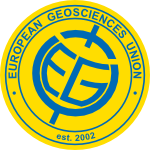-
Recent Questions
- Hello. I wanted to ask…what does paleomagnetism particularly study? :)
- Do you expected to be one of the finalists?
- Why is water vapor only in the troposphere part?
- 1.How did Earth and other planets form?-su yaşin
- Do you think the accumulation of tension can be prevented in order to reduce the intesity of earthquake? (1 Comment)
Recent Comments
- Thanks from your winner - Andi! (2 comments)
- Do you think the accumulation of tension can be prevented in order to reduce the intesity of earthquake? (1 comments)
- If there is an earthquake on Jupiter, Mars, Venus etc. will it still be called EARTHquake ? (1 comments)
- How do you measure the depth of an ocean ? (2 comments)
- What do you think of music like Ed Sheeran's songs? (1 comments)









It is not a possibility, it is a fact!
The Earth continents have amalgamated into supercontinents like Pangaea every now and then in a quasi-periodic cycle (that lasts about 600 million years). It is called the supercontinent cycle. Other supercontinents in the history of the Earth are Rodinia (formed about 1000 million years ago) Columbia/Nuna (1800 million years ago), Kenorland (long, long ago). The problem is that as we go back in time it is more difficult to study these supercontinents.
Some scientist have predicted the possible next supercontinent. It has been called Amasia (fusion between America and Asia) or Pangea Ultima, that following their research would form in 300 million years. So, bad luck, we are not going to see it. I must say that none of these names sounds really nice to me. I would like something newer, based on 21st century culture.
2
That is a good question!
This is sort of already happening right now… India is currently driving into the Eurasian plate to form the Himalayan mountains and the African continent is slowly moving northward to collide with Europe – this is why the French Alps have been built! North and South America are moving slowly west ward but a new round of subduction is beginning around the Caribbean area and so in the future North and South America will perhaps begin to move back towards the East and will collide with the UK, Europe and the west of Africa to form a new Pangea.
What would you call the new continent??
1
Plate tectonic is definitely exciting! I remember seeing a really cool reconstruction of the old and new possible Pangea and an interactive model of the different scenarios at the Science museum in Vienna. I must have spent half an hour playing with it!
The current reconstructions see the Americas meeting Eurasia at the North Pole…a pretty different scenario from what we have today, right?!
Apparently there are also other theories which see South America and Antarctica not merging with the other continents but staying separated, because of strong underwater volcanic activity.
1